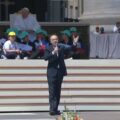
Watch
When the TV cares about the planet – Interview with Olivella Foresta
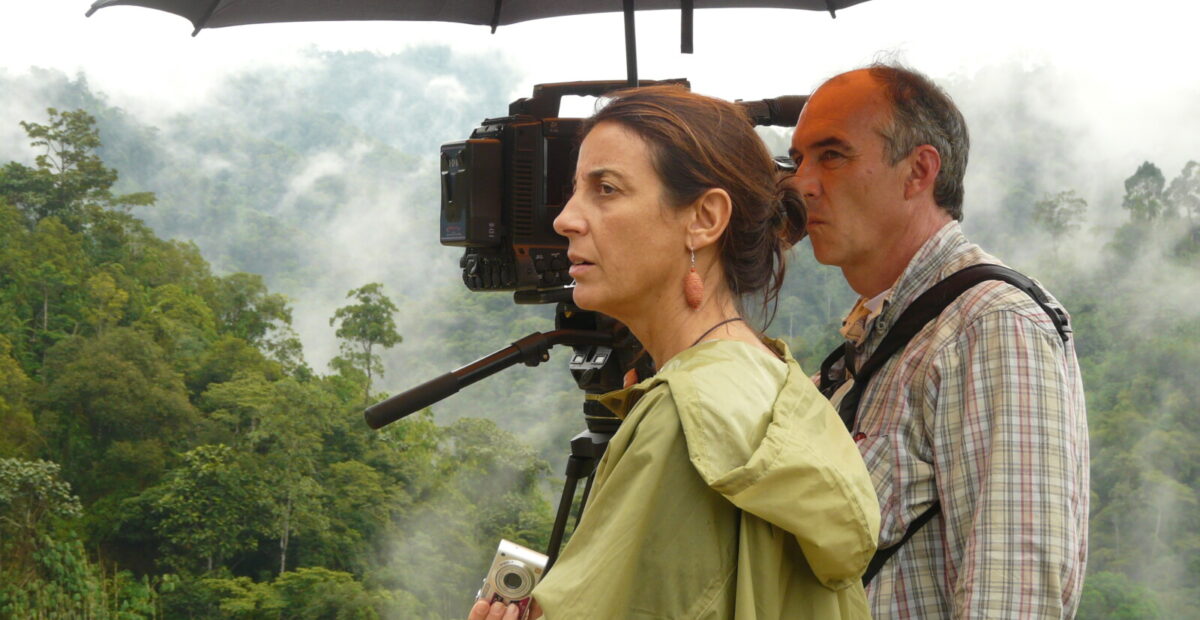
A documentary filmmaker by profession, she brings a realistic, close and hopeful ecology to TV.
Olivella Foresta is an expert documentary filmmaker. She has collaborated with giants like Piero Angela (Superquark) and, through an internship, with David Attenborough. She has also worked with Vandana Shiva, an Indian activist and environmentalist, fighting to change practices in agriculture and food, particularly against monoculture.
Olivella Foresta’s work began in England, where she worked in TV for years, but her long experience is particularly tied to a now-historic Rai program (in Italy) dedicated to the environment: Geo. Here she has produced many documentaries, and her testimony helps us understand how the media, especially the TV, can talk constructively about ecology. That’s why we met her, starting with one of her recent, paradigmatic works, which she wrote, edited, and directed alongside Diego D’Innocenzo. It is entitled “The Lake of Wonders” and was filmed at Chilika Lake, in the Bay of Bengal, India.
Olivella, what is it about?
It is often said that India produces pollution, but there are local sensitivities everywhere. This project has been in place for years, thanks to the State of Odisha, in a poor area that is a destination for migratory birds. Here, the main activity is fishing, but during the monsoon season, it is quite difficult to carry it out. Therefore, the activity of hunting migratory birds has developed. The idea was to stop this illegal activity by employing people as guardians of the heritage: fishermen, when possible, park rangers at other times. A total reserve could not be established; periods needed to be left for intelligent fishing. Now, visitors from all over India and abroad come to this park. When the migratory birds arrive, scientists also visit.
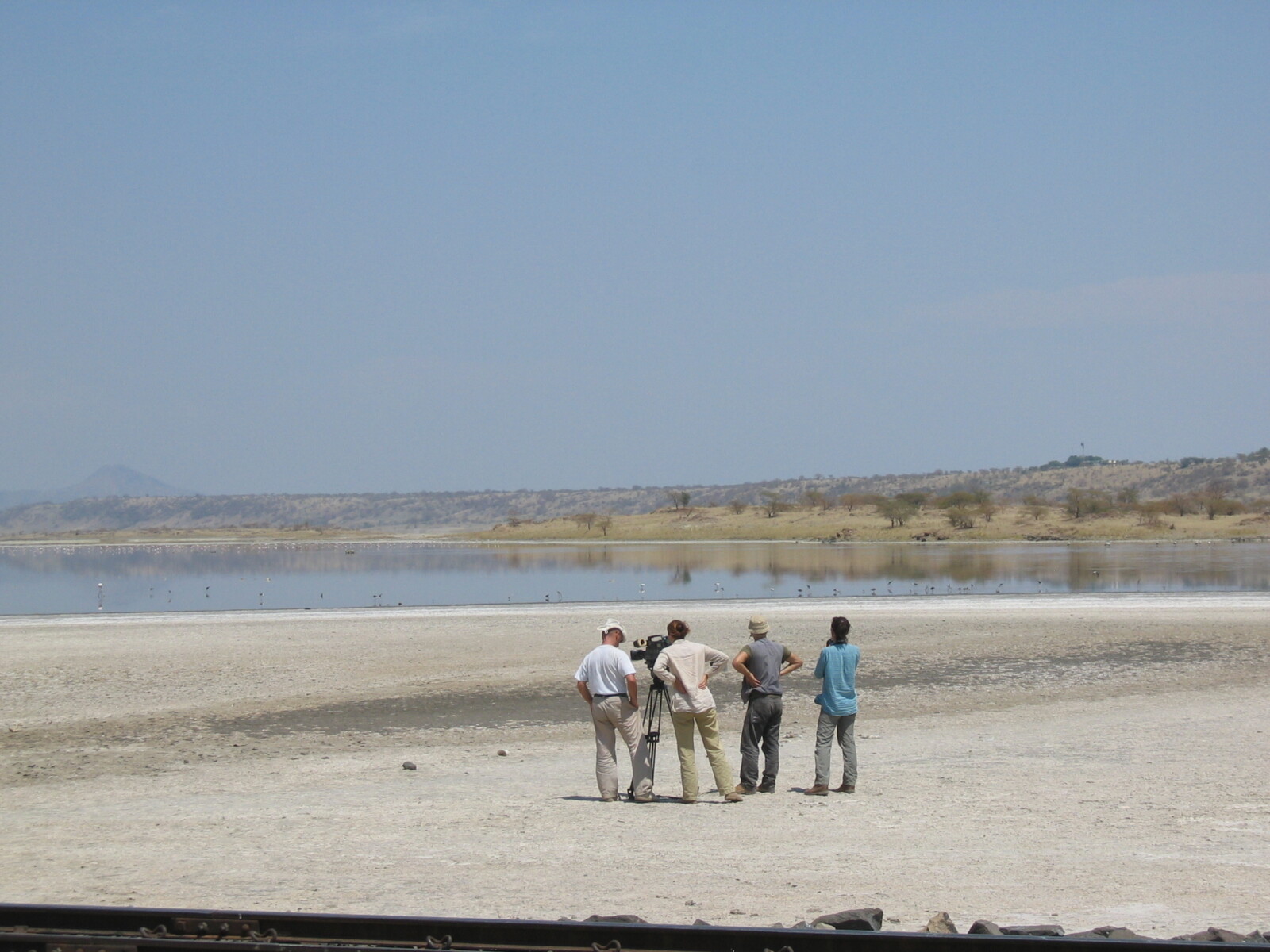
A positive story
On ecological commitment not just in words but in actions. Ecological projects work when they are harmonized with other human needs, when environmental sensitivity is linked to people’s needs. You cannot tell people to stop eating. It is the sustainable green that becomes a virtuous circle without demonizing human needs.
Does this type of work also belong to Geo?
These elements are fundamental to Geo’s editorial line, which prefers practice to theory and does not like preaching, extremes or utopian ideas. It seeks to tell how the relationship with the environment can improve with positive yet sustainable examples that viewers can identify with to take concrete action. We address sustainability today to create sensitivity towards the environment. Geo is attentive to maintaining roots in generational transitions, to the return of the youth to their grandparents’ land and to the recovery of the territory. Rather than focusing on the speed and radicality of change, we think about the balance between optimization and respect.
Can you give some examples?
We are editing documentaries filmed in Val Maira: a valley above Cuneo, where people have chosen a respectful program, without intrusive tourist structures. They have adopted slowness and the youth have returned, reviving the work of their parents and grandparents, using modern technologies and training.
Can we say that Geo’s audience reflects society?
Geo speaks to both children and adults. We cross a particular time slot with grandparents watching their grandchildren, so the message must be conveyed with simplicity, care and delicacy, because there are minors and often the elderly have the territory in their cultural baggage and in their hearts. They may have worked on the land directly; they possess knowledge gained through contact. You cannot talk to them about human absence but about harmony between humans and nature.
And then to the youth
Geo also speaks to the new generations, who are often very well-prepared: to the new environmental experts, to the new farmers. To teachers, among whom we have a large following and responsibility, because they, in turn, must convey the message. They can draw inspiration from us for school projects. Finally, there is the general audience that, in our case, seeks a positive relationship with the environment.
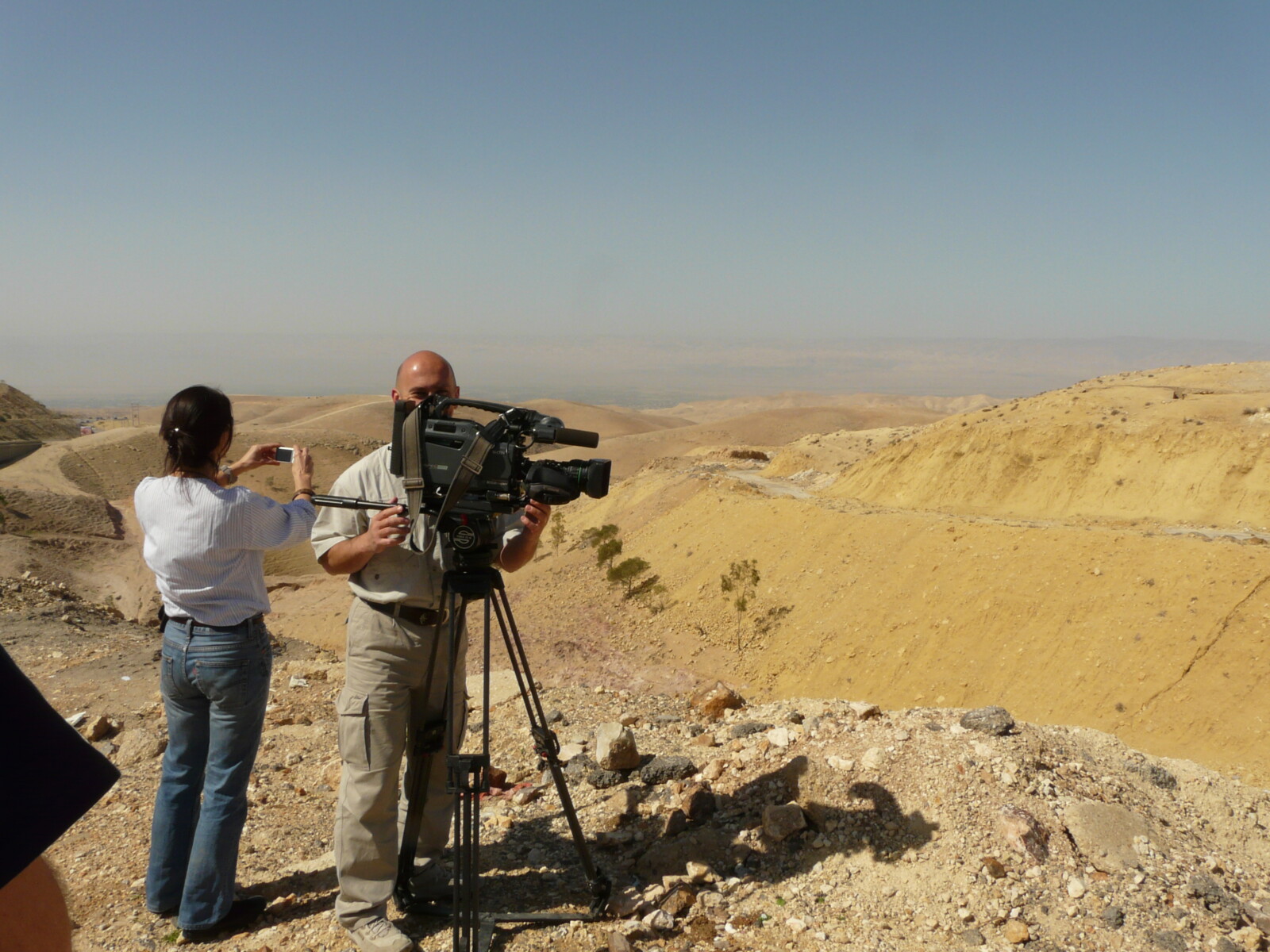
What do you focus on in particular?
On the stories. When I oversaw acquisitions, I received, especially from abroad, generic documentaries on the topic of water or the planet. We do not delve into these large theoretical subjects. The big theme exists, but it comes through the story of a person or a group of people. When a farmer cultivates in an area where there isn’t much water, they know how to do it without wasting it; otherwise, they wouldn’t have any to grow crops or provide water for animals. This way, the necessity to respect the environment is well conveyed. Then, we can associate the documentary with a scientist who discusses the hydrological situation in the studio.
Can we define it as embodied ecology?
I would say so, and credit goes to the host Sveva Sagramola, with her extraordinary yet humble ability to tell environmental stories. I spent a month in Africa with her in 2009, creating nine documentaries filled with attention and respect for the people portrayed. We were with the local population and in the slums of Nairobi. We met people like John Mureri, a young lawyer who has dedicated his life to safeguarding the humblest. This is also a way to tell the story of the environment.
It falls within the concept of “Integral Ecology” from Pope Francis.
We should never feel superior to the environment but integrated into it, and this is what we try to convey at Geo. We do not focus on the degeneration of the relationship. We seek to respect categories without demonizing or glorifying them.
Among your very first documentaries for Geo, there is one about Anna Giordano. Who is she?
An incredible woman who fought against the hunting of the honey buzzard in the Strait of Messina in the 1990s. There was a tradition there that if you killed one – they call it Adorno – it meant you weren’t a cuckold. Hunters rented old World War II bunkers to kill them. They were only trophies, they were not even good to eat. This woman, with the help of the Forest Guards, committed herself against this ugly tradition, facing many problems. They even burnt her car. The documentary is titled La Signora dei falchi (The Lady of the Hawks).
Talking about the environment means denouncing what is wrong, but also offering hope to overcome the environmental crisis. How does Geo position itself between these two poles?
Our editorial line is one of hope. We address denunciation indirectly, but without ignoring the problem. We delve into it during the studio segments with guests. We try to show how things can work with a documentary that serves as a window of hope. For instance, if we talk about the abandonment of rural areas, we also show a family that is renovating a house. We do not overlook the negative aspects but rather use them as a foundation to build upon. In our editorial line, there are no political figures because politics often tends to polarize, while we are interested in telling what works and is useful. Is there a beautiful bike path? It doesn’t matter if it was built by the right or the left side. We focus on the importance of that path for families and individuals. If we want to call it an editorial line of hope, well, we have it strong.
The wound is the starting point. Can we say this about Geo?
We do not tell the story of the “land of fires” in Campania, but rather the difficulties faced by farmers who focus on organic farming and deal with the issue of unhealthy fumes. For example, in a documentary made in Salina, “The Scent of Home,” discussing the labor involved in caper cultivation, which is arduous and sporadic, we touched on the topic of low-cost labor for immigrants.
You don’t conduct real investigations…
Not in the form of a Report. We describe critical issues constructively, especially in documentaries, often collaborating with virtuous organizations like Legambiente. We are always attentive to reality. We never construct a fairy tale. We love to talk about organic cultures and the issue of waste.
Any other examples?
A documentary on the controversial presence of wolves, reintroduced through the San Francesco project in the 1970s. There are many, and what do we do? Do we give up on a positive project? It is worth having patience and seeking tools for a healthy coexistence. The documentary tells the story of the invention of collars that signal the presence of wolves to the shepherd and the farmer. We try to offer suggestions for a healthy coexistence among the different realities of the Planet, if we want it to maintain its diversity.
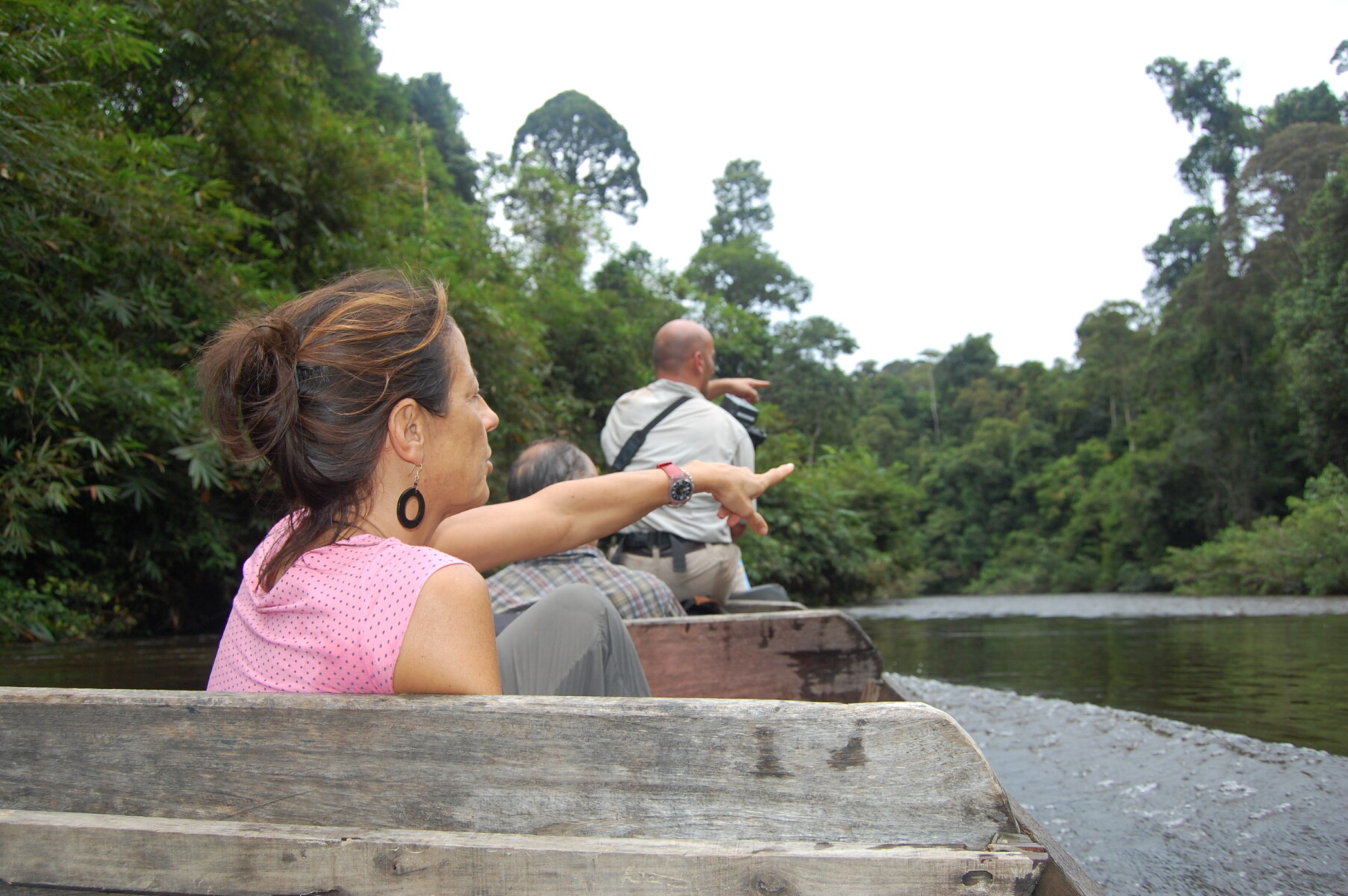
Can we say that with your work you help the public become aware that humans cannot live without a healthy Planet?
This is Geo’s mission: to reaffirm that we are part of a larger mechanism. We cannot do whatever we want because the Planet is interconnected, and we must take our responsibilities. The issue of wild boars on the streets is linked to urban waste management and overflowing bins left open. Geo understands that the wild boar is also a threat to farmers, but it thinks about the balance that leads to harmony between humans and animals, between the economy and nature. Without harmony, we risk ruining the planet.
We go back the concept of integral ecology and Pope Francis
He has been a deep ally, the strongest and most authoritative voice regarding the war that destroys the environment. The ecological damage after a war is terrible, and this aspect of the wars is rarely discussed.
What do you feel after so many years of work, seeing that many problems are still there?
It’s not easy to answer. If you look out of the window, it’s hard to say that things have improved, but our show encounters many motivated and determined people. This leads me to say that the sensitivity has improved. At Geo, there is a sense of closeness with those who give their all. Our job is to tell their stories. There are moments of discouragement, like facing a river in terrible conditions, but its strength is found by meeting those who clean it up. They have understood that the river is home, not a place to throw waste.
Ambivalent feelings
Let’s say that the base is better than those who lead us, unfortunately: still anchored to the voting mechanism. However, there are many capable youth who fuel hope.
What is the role of the media?
I believe that today, thanks to the media, there is a new sensitivity, but I return to those who lead us and the big multinationals, to the monoculture that destroys. Cultivating only one thing in a country is very risky. Carlo Petrini, who collaborates with Vandana Shiva, also says this. At Geo, we talk about the importance of diverse crops and crop rotation. Once again, we do not make direct denunciations, but we clearly imply that the god of profit does not lead to the safeguarding of the environment.
How important is education for young people, and how much can good TV contribute?
Education is very important, especially the in-depth work with schools. I also believe that after three hours of Geo, one feels that something can be done. It’s a show that encourages: you leave Geo as a better person than when you entered.
I think that with your work, you intercept an inherent need in people, perhaps clouded by the currents of our society, but still resilient.
Rebuilding harmony with the environment taps into a deep, intimate need of ours, which is also a desire for peace.
